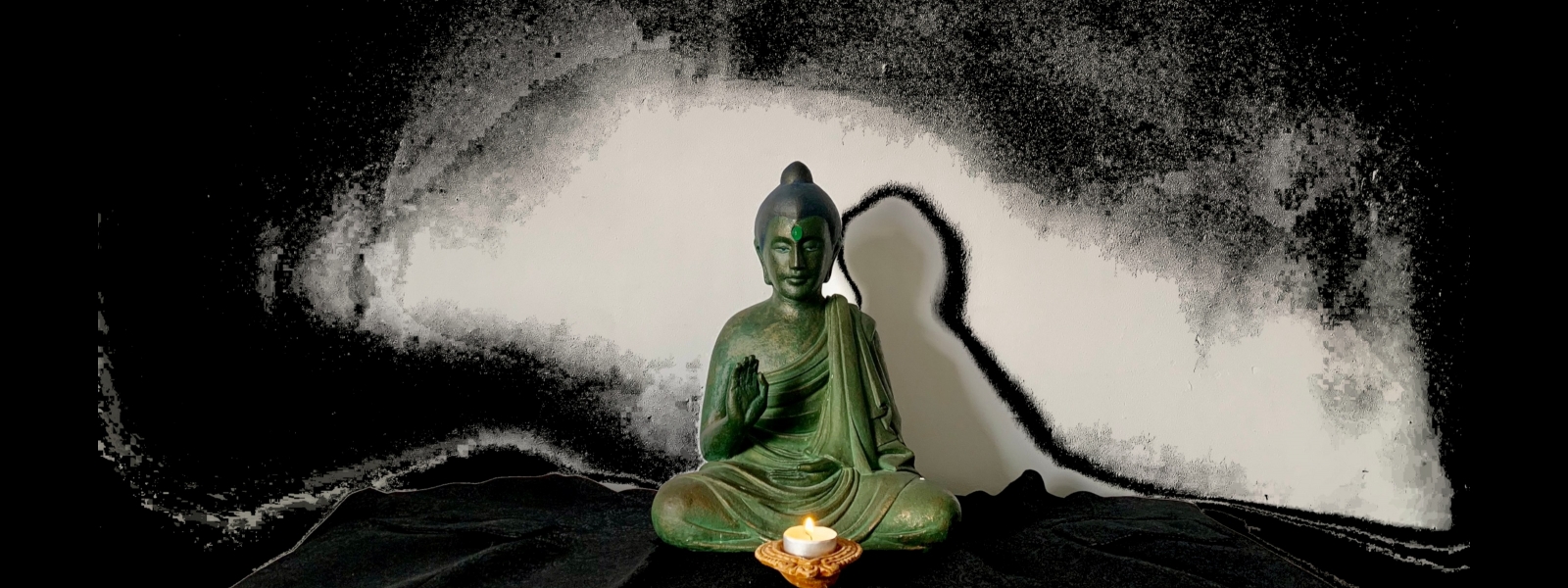Faced with immense suffering in the world, what does the Buddhism have to offer?
My parents live in Poland on an ancestral estate which in happier times is used as a venue for conferences, a forest school, arts programmes and retreats. Now they have opened it up to refugee families fleeing Ukraine, and are currently housing thirty people. The stories are heartbreaking. Homes lost, families torn apart. Days of waiting in the cold to cross the border. One woman is 8-months pregnant. She fled Kharkiv while her husband stayed behind to fight, and many others have similar stories.
Taraloka can feel far away from bombs falling in Ukraine and refugees streaming across the border into Poland. It can feel incongruous to go for a morning walk taking in the Spring, and then open up the news and read about the sieges of Mariupol and Kyiv. Naively, I sometimes wonder how bombs and bloodshed can exist in the same world as birdsong. In the dedication ceremony at the beginning of retreats, we often say, “Though in the world outside there is strife, here may there be peace.” What does that actually mean? Are we leaving the rest of the world to get on with its hardship while we sit here and bliss out?
In the face of war, what good is the Dharma? The best answer I can come up with right now is that practising the Dharma helps me to live in a complex world which contains birdsong and bombs. Cultivating an inner peace makes it possible for me to meet suffering with compassion, rather than avoiding it or becoming paralysed by feelings of helplessness. Buddhism does not look for easy answers; rather it looks squarely at the human condition which allows war to happen. It invites me to understand that I too get caught up in greed, hatred and delusion. I too cause suffering when I act or speak from these states of mind. We do not go on retreat to cut ourselves off; we go on retreat to get to know what is at the heart of life, and to train ourselves in responding appropriately. A retreat is not an escape, but a journey. We come back changed, with different eyes and a greater capacity to meet the challenges of living in a deeply imperfect world.
When I speak with my parents, they are full of admiration for the refugees’ resilience and courage, and the sense of community they are building. They are also mindful that their guests’ situations are extremely complex, and whilst my parents can offer a safe haven for a time, their guests are at the beginning of a very difficult journey. Considering the enormity of the situation, our efforts can feel so small. And yet, I’m reminded of an old Chinese proverb: “It is better to light a candle than to curse the darkness.”
On a spring morning at Taraloka, Ukraine may feel far away; but the poisons of greed, hatred and delusion that lie at the root of warfare are far from vanquished. What candle are we lighting? We can only practice in our lives as they are; and so here we create a space where people can train their hearts and minds to respond with clarity and compassion to whatever arises – in their own hearts, and in the world.
If you would like to help with the costs of housing refugees at Sichow Educational Foundation, please click here. Donations are gratefully received!



